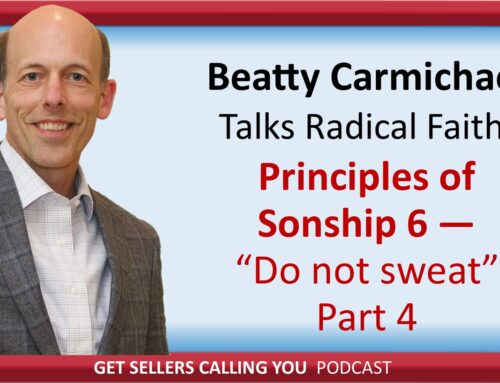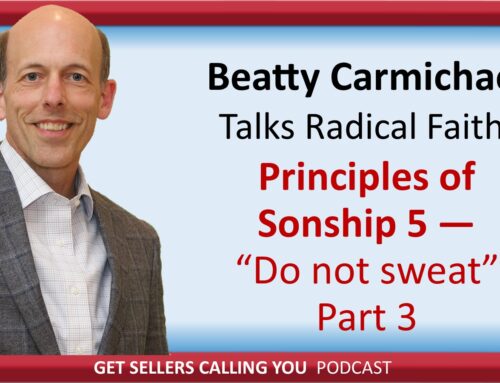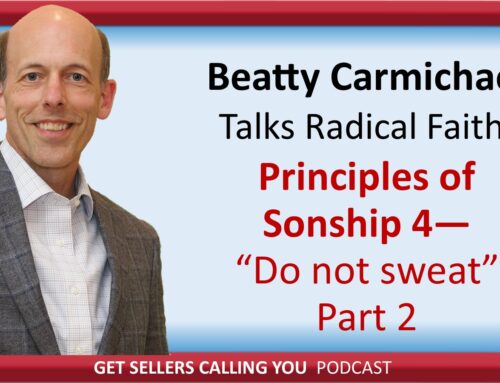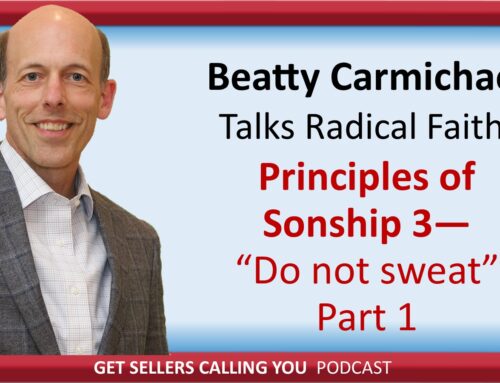Numbers 21:4-7 – “From Mount Hor they set out by the way to the Red Sea, to go around the land of Edom. And the people became impatient on the way. And the people spoke against God and against Moses, “Why have you brought us up out of Egypt to die in the wilderness? For there is no food and no water, and we loathe this worthless food.” Then the LORD sent fiery serpents among the people, and they bit the people, so that many people of Israel died. And the people came to Moses and said, “We have sinned, for we have spoken against the LORD and against you. Pray to the LORD, that he take away the serpents from us.” So Moses prayed for the people.” (ESV)
Should a Christian business person sue another person when they break their contractual obligations?
In other words, should we forgive and forget, or should we enforce? What’s the proper role of a believer and follower of Jesus?
I think the confusion comes from not recognizing there are two answers to the same question depending on the entity from which we are responding.
The Old Testament is clear that commitments made should be upheld, and if you fail to uphold your commitment there will be consequence. We see this with God and his people all the time.
But in the New Testament Jesus tells us to forgive our enemy and do good to them. And if someone were to take one part of your belongings, to give them more. Or if they were to force you to go one mile, go two miles.
Are these not conflicting instructions? Absolutely not. God is the same yesterday, today, and forever. God does not change, and neither do his ways.
So how do we reconcile these two things? How do we reconcile God holding people to their commitments, and Jesus saying to forgive when someone violates your right? Are they not essentially the same thing?
And what about when Paul says he would rather be defrauded by a brother than to sue a brother?
I think the way to understand this is to look at it in light of governmental process versus individual process.
The role of the government is to enforce the law. An eye for an eye, a tooth for a tooth. If one has committed a crime, that person must suffer consequence.
But the role of an individual in Christ is to forgive and to love his enemy. And by loving him we open his eyes to his sin that he might repent and follow the Lord. As the song says, “they will know we are Christians by our love.”
So back to the question: when you have a contract with someone and they violate it, as a Christian how should you respond? Do you forgive, give them more than they breached, and love them as your “enemy,” or do you enforce that for which they committed to do?
As I have struggled with this in business, the Lord has consistently directed me to enforce the contractual obligations made by our customers. While I’m commanded as an individual to forgive one’s sins against me, simultaneously I’m directed as business owner to enforce their commitments to our business.
It seems like a dichotomy, but it’s not. And here is the difference…
Operating a business is different than being an individual. Much like criminal punishment, the government is required to bring justice upon evil men, but an individual is commanded to forgive evil men. In the same way, the business must enforce a customer’s contractual obligation even if the person is reluctant to honor it, but an individual is directed to forgive similar offenses against him.
And that’s what we see in this passage from Numbers 21.
The people made a commitment to the Lord to follow and obey him. And yet every step they take in the wilderness they constantly rebel and violate that commitment. The Lord doesn’t forgive them. He holds them accountable. And he enforces their commitment even though they are reluctant to do it. Enforcing their commitment is the right thing to do.
That is what we see in this passage. When they grumbled against the Lord and broke their commitment to follow and serve him, God enforced their commitment by sending fiery serpents to punish them. And notice what happens in verse 7: “And the people came to Moses and said, we have sinned.” It’s only after God enforced their commitment that they reluctantly agreed that they had sinned. They knew they were sinning all along. But until their hand was forced they would not acknowledge it.
That’s God. But what about a Christian in business?
As a business owner, I have a fiduciary responsibility to the shareholders of the business. In other words, I’m not acting in my individual capacity as a Christian, I’m operating in my business capacity as a manager of other people’s rights.
In that regard, over more than 25 years in business, most every time I have sought the Lord’s guidance on whether we should enforce the contractual obligations upon a client, the Lord has said yes. More than saying yes, he actually directs me to do it and says that I must. It’s not my decision, but his. If I had my way, I would not do it. But I must follow his direction.
And why does the Lord tell us to enforce the obligations of our customers? Because they agreed to it and it’s right in the Lord’s eyes to hold them to what they agreed to. In fact, it is so right in his eyes that he sets the example and does it numerous times throughout the Bible himself.
Forcing someone’s hand to hold to their commitment is right in the Lord’s eyes. It must be done with compassion, but it’s right. It’s right in his eyes when dealing with his people, and it’s right in his eyes when we deal with his people.







Leave A Comment